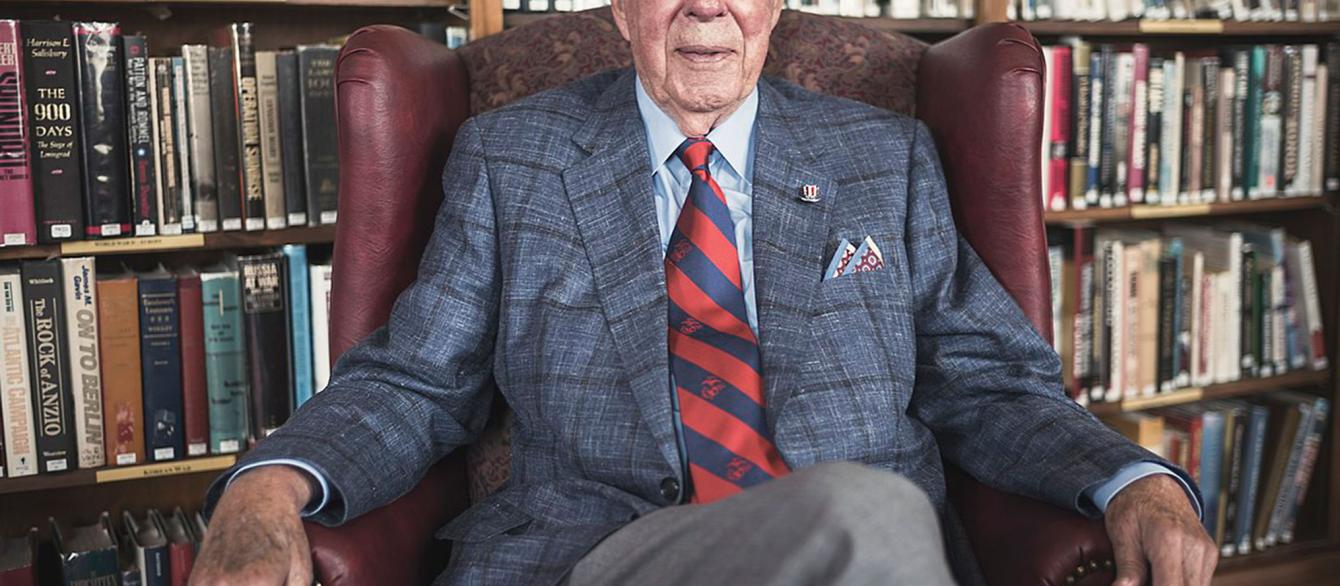I recently read the transcripts of Secretary of State George Shultz’s memorial service, held a few weeks ago at Stanford University. Reflections on his achievements filled me with hope, even as my conversations with Davis Center faculty and students often focus on the seemingly intractable relationship with Russia. After all, can I really claim our current challenges with the Russian Federation are more dire than what Shultz faced as our nation’s top diplomat vis-à-vis the mighty Soviet Union?
At the service, attended by foreign policy luminaries, Secretary Kissinger remembered Shultz as an innovative problem solver, while current Secretary of State Antony Blinken described Shultz as a teacher and a leader in the foreign service, my home institution. As we research international deal-making with the Davis Center’s Negotiation Task Force, Nora Cyra and I discussed how Secretary Shultz practiced the principles we advocate at NTF. In a multi-part series over the next few weeks, we highlight Secretary Shultz’s key strategies for successful negotiations.
Lesson One: Trust is Key to Dealmaking
Upon turning 100, Secretary Shultz wrote, “Trust is the coin of the realm. When trust was in the room, whatever room that was—the family room, the schoolroom, the locker room, the office room, the government room or the military room—good things happened. When trust was not in the room, good things did not happen. Everything else is details.”
In negotiating with the Soviets, Shultz strove to both trust his counterparts and to build trust with them.
This practice was especially remarkable as each side had reduced its adversaries to caricatures of evil, demonizing and stereotyping them. Shultz, fighting countervailing opinions of the time, “respected [the Soviets] not only as able negotiators but as people who could make a deal and stick to it.” It is hard to imagine that the Intermediate-Range Nuclear Forces Treaty (INF) or the eventual end to the Cold War would have been possible if Shultz had not convinced President Reagan to take a leap of faith with Gorbachev. Trust isn’t easy and there will always be reasons to mistrust the other side, but I cannot think of a time in my career—both overseas and in Washington—when an effective lasting achievement was possible without that leap of faith.
In building trust, Shultz humanized the Soviets, viewing them as partners in dealmaking. He recounted a telling story:
In 1973, when I was treasury secretary, I attended a wreath-laying ceremony at a World War II memorial in Leningrad with the Soviet foreign trade minister, Nikolai Patolichev. As we walked, Patolichev, a tough old guy, described the staggering death toll in the Battle of Leningrad. Tears streamed down his face, and his interpreter was sobbing. When we were about to leave, I said to Patolichev, ‘I, too, fought in World War II and had friends killed beside me.’ Looking out over the cemetery, I added, ‘After all, these were the soldiers who defeated Hitler.’ Facing the cemetery, I raised my best Marine salute, and Patolichev thanked me for the show of respect. Later on, to my surprise, I found that I had earned the trust of Soviet leaders as a result of this visit.
By building trust with his Soviet counterparts and by being willing to trust them as well, Shultz laid the groundwork for monumental deals that had previously seemed impossible. Even as a master negotiator, Shultz understood that trust was not secured with a single act. It takes time and consistency, but lasting achievements cannot be reached without it.
How are you building trust in your upcoming negotiations?






